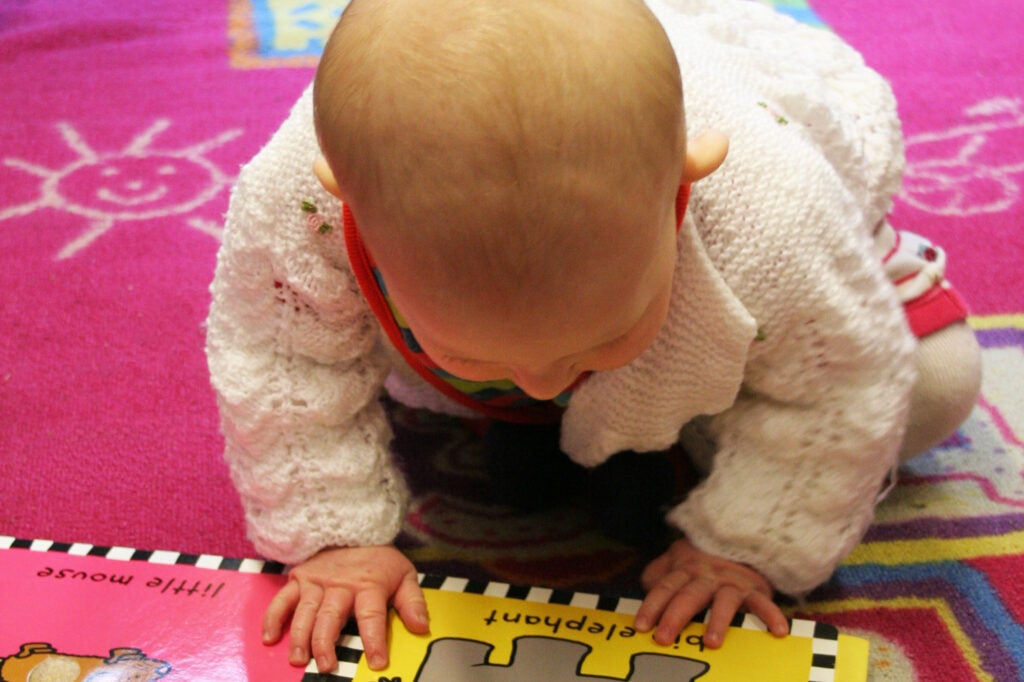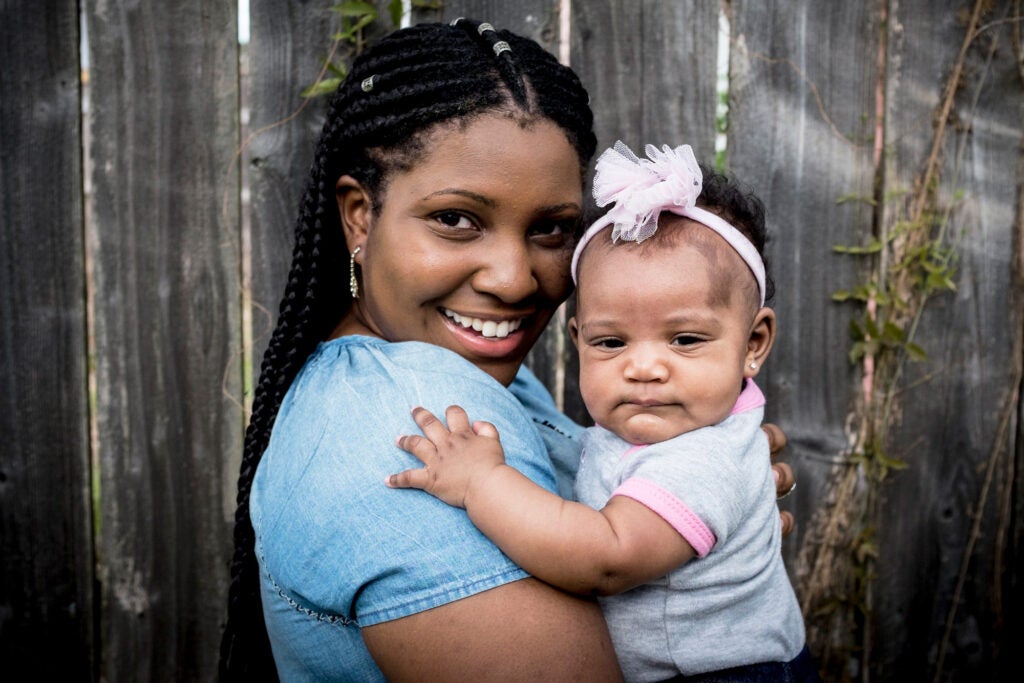
The first five years of life are a time of unparalleled change in the brains and abilities of young children. All families need access to a wide range of services and supports that are responsive to the family, cultural and linguistic contexts to promote healthy development. Additionally, some families need specialized services to mitigate risk factors or address problems young children may experience.
Our early childhood efforts are committed to bridging the gap between what researchers and practitioners know is effective and what is available in communities for young children and their families. We work at multiple levels to translate evidence-based and best practice knowledge into practical, meaningful, and functional implementation strategies, advancing the development and implementation of equitable and innovative programs, practices, and policies that support the healthy development of infants, young children and their families through an early relational lens.
Current Research
Horen, N. M., Sayles, J., McDermott, K., Sippel-Klug, K., Drake-Croft, J., & Long, T. (2024). Infant and early childhood mental health (IECMH) and early childhood intervention: intentional integration. International journal of environmental research and public health, 21(7), 870.
Davis, A. E., Saad, G., Williams, D., Wortham, W., Perry, D., Aron, E., & Biel, M. G. (2021). Clinician perspectives on adapting evidence-based mental health treatment for infants and toddlers during COVID-19. Perspectives in infant mental health.
Key Activities
Technical Assistance
Our technical assistance (TA) is designed to translate knowledge into practice through customized consultations to organizations, communities and government entities. The TA is highly individualized and focuses on building the capacity of states, tribes, communities, and service providers to change policies, programs and practices.
- National Center on Health, Behavioral Health, and Safety (NCHBHS)
- Center of Excellence for Infant and Early Childhood Mental Health Consultation
- The Infant and Early Childhood Mental Health Technical Assistance Center (IECMH TA Center)
- National Training and Technical Assistance Center for Child, Youth, and Family Mental Health (NTTAC)
- Early Childhood Comprehensive Systems (ECCS)
- Early Childhood Developmental Health Systems: Evidence to Impact Center
Workforce Development
We conduct extensive workforce development for those working with infants, toddlers, young children and their families. We offer a wide variety of learning opportunities through different formats such as guest lectures, academic courses, online modules, and certificate programs to meet the needs of learners at the undergraduate and graduate levels.
- Georgetown University Certificate Programs
- Early Childhood Intervention Professional Development Center
- Contemporary Practices in Early Intervention
Community and Clinical Services
The Thrive Center partners with community-based organizations in the Washington, D.C., Metro area that serve young children with or at risk for developmental delays or disabilities, their families and their caregivers. We provide diagnostic services and interventions in homes and community-based settings.
Research and Evaluation
Our research and evaluation activities build the early childhood research base and provide research-informed guidance to states and communities on effective strategies and interventions. Ultimately, we strive to improve the linkages between research, policy and practice.
Maternal, Infant, and Early Childhood Home Visiting (MIECHV) Formula Evaluation: The DC Department of Health contracts with the center to evaluate the federal dollars it receives from Health Resources and Services Administration (HRSA) to support MIECHV home visiting supports within the District of Columbia.
DC Social Emotional and Early Development (SEED) Project: A four-year Substance Abuse and Mental Health Services Administration (SAMHSA) System of Care Expansion and Sustainability Cooperative Agreement was awarded to the DC Department of Behavioral Health in 2016 to address the needs of young children (birth-6) who were at-risk for or diagnosed with serious emotional disturbance (SED). The center led a mixed methods evaluation to support the project.
People
Research Instructor
Director of Project Development
Assistant Professor of Pediatrics
Program Director, Certificate in Infant & Early Childhood Mental Health Family Leadership
Assistant Professor of Pediatrics
Professor of Psychiatry
Director of Research, Thrive Center for Children, Families, and Communities
Research Instructor
Research Instructor | CPR2 Facilitator
Associate Professor of Pediatrics
Director of Infant, Early Childhood and Relational Health, Thrive Center for Children, Families, and Communities
Assistant Professor of Pediatrics
Adjunct Associate Professor of Pediatrics
GUMC Adjunct — Associate Professor
Adjunct Professor of Pediatrics
Professor of Pediatrics
Director of Workforce Development, Education, and Training, Thrive Center for Children, Families, and Communities
Assistant Professor of Pediatrics
Associate Professor of Pediatrics
Assistant Professor of Pediatrics
Assistant Professor of Psychiatry
Senior Research Associate
SOM Research Track — Assistant Professor
Research Instructor
Assistant Professor of Pediatrics
Research Instructor
Professor of Pediatrics
Founder and Director, Nurture Connection
Resources

Technical Assistance
Workforce Development
- Georgetown University Early Childhood Intervention Professional Development Center
- Motivational Interviewing Suite